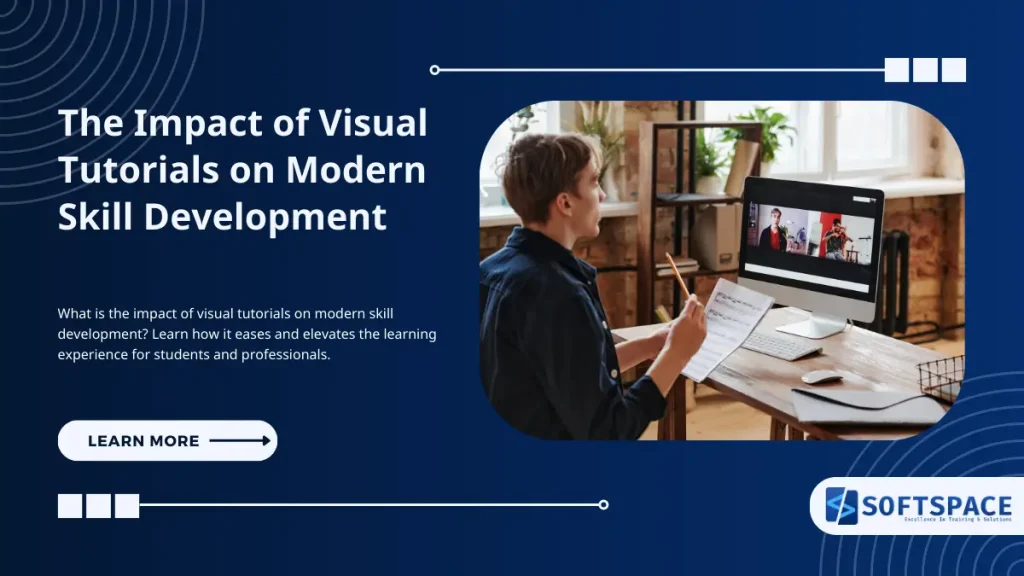Hiring the right person is critical to the success of any organization, but it is equally important to know when to offer a potential hire. While an interview provides valuable insight into a candidate’s abilities and temperament, it can also highlight red flags of potential problems in general.
Making the tough decision to reject a candidate after an interview isn’t just about feeling scared – it’s about recognizing specific warning signs that can impact your team’s growth, productivity, and overall company culture. In this blog post, we’ll explore the genuine reasons to reject a candidate after interview and why they are relevant today.
The importance of finding the right candidate
Finding the right candidate is a critical decision that extends far beyond matching qualifications on a resume. It’s a strategic investment that shapes your organization’s future, impacting everything from daily operations to long-term success.
From a financial perspective, the stakes are particularly high. Organizations invest significant resources in recruiting, onboarding, and training new employees. A poor hiring decision can result in substantial costs, often ranging from 30% to 150% of the employee’s annual salary. These costs encompass not just direct expenses but also hidden costs like lost productivity, team morale, and potential client relationships.
Every new hire influences the existing team’s chemistry and workplace atmosphere. When you bring in someone who aligns with your company’s values and working style, they naturally enhance team collaboration and contribute to a positive work environment. On the flip side, a misaligned hire can disrupt team harmony and hinder productivity, creating ripple effects throughout the organization.
Moreover, hiring the right candidate influences your company’s market presence and competitive edge. The right employees become ambassadors for your brand, driving innovation, and maintaining high standards of service.
They bring fresh perspectives, identify new opportunities, and help your organization adapt to changing market conditions. Their contributions extend beyond their immediate role, often inspiring and mentoring others while helping to build a stronger, more resilient organization.
Remember that hiring is a two-way investment. When you find the right candidate, they’re more likely to stay with your company longer, grow within their role, and contribute meaningfully to your organization’s success. This creates a positive cycle where engaged employees drive better business outcomes, leading to increased growth and opportunities for everyone involved.
- The importance of finding the right candidate
- Reasons to Reject a Candidate after Interview
- High competition among candidates
- Lack of punctuality
- Poor communication with team members
- A behavioural or cultural mismatch
- Mismatch with job requirements
- Your online presence and behaviour
- Questions About Salary/Benefits
- Lack of Passion and no Career Goal
- Lack of relevant experience
- Some mind-blowing interview statistics
- Conclusion
Reasons to Reject a Candidate after Interview
High competition among candidates
This is the topmost and the extremely crucial point and one of the biggest reasons to reject a candidate after interview. You, as a candidate need to understand that you are not the only one who is WELL QUALIFIED or THE BEST SUITED among the competition. There are people with similar expertise or better than yours. So, it is very important to understand that sometimes your competitor might be better suited to the job than you.
For example, the data science field exhibits high job competition, fueled by a surge in aspiring professionals and a robust demand for skilled individuals, particularly at senior levels. However, the overall job market for data science remains strong, with ample opportunities across various industries.
So, this can be another factor that affects your candidature. But, this is part and parcel of the job market. You have to accept and try for another opportunity.
Lack of punctuality
The interview is scheduled for 10:00 AM, you have to be there at least 20-30 minutes early and compose yourself. If you are travelling to another city for the interview, get the location details first or a day early. Don’t push everything to the last minute. This habit has ruined many opportunities.
From a candidate’s point of view, if you are getting late due to some emergency or a problem, then inform the HR or the interview coordinator, and get it sorted for yourself. Being late is the worst impression and defines you CARELESS. So, respect the time and the event, because it is important for you only.
Showing up late is the biggest RED FLAG and a POTENTIAL DEALBREAKER. This can lead to your elimination from the candidature. So, be mindful of time and punctuality. This is one of the very genuine reasons to reject a candidate after interview. Why? Lack of professionalism.
Poor communication with team members
Job is always a team play. Even though you have your own responsibilities defined, you have to work with a team. So, become a team player, gel with everyone and uplift yourself with your work buddies. A lack of respect among the team or coworkers filters you out as a negative impact and might sideline you from the whole promotion consideration.
Your team members are equally good or might be better than you at the job. So, respect them and earn their respect by being a good team player and an excellent communicator. If you need assistance, ask politely and get the work done. If you can help, help without the ego. These things seem pretty simple here, but practically they are very tough to follow. So, be tough for that.
There will always be some ups and downs in work, but don’t let that overwhelm you and demean anyone. Your behaviour is seen through your work and your talks. Your respect is what you have to maintain at work.
A behavioural or cultural mismatch
A behavioural or cultural mismatch can occur when there is a significant difference between an individual’s values, beliefs, or behaviours and the expected or accepted norms of a particular group, organization, or society. This can lead to feelings of isolation, frustration, and conflict.
This mismatch can be in communication styles, work ethic as well as risk tolerance. Someone like me, who is very direct in speaking and pointing out stuff, can never be a part of a consensus team. An independent worker cannot tolerate a team environment which is not going at his pace or style.
This is one of the very considerable reasons to reject a candidate after interview. Why? Because, the team culture is different and you are different. Your behaviour might not be suitable for the team or the team culture might not be suitable for you.
Mismatch with job requirements
A “mismatch with job requirements” occurs when a candidate’s skills, experience, or qualifications do not align with the specific needs of a role. This doesn’t necessarily reflect poorly on the candidate but highlights a gap between what the organisation requires and what the individual offers.
Some common reasons include differences in technical skills, experience levels, or cultural fit. For employers, it’s essential to communicate this tactfully, ensuring the candidate understands the decision without diminishing their confidence.
Transparency, constructive feedback, and encouragement for future applications can help candidates view the rejection as a learning opportunity while maintaining the company’s professional image.
This can happen to anyone, and it is better to receive constructive criticism along with the rejection instead of entering into something that is not meant for you.
Your online presence and behaviour
In today’s digital age, your online presence and behaviour play a significant role in shaping how others perceive you, both personally and professionally. Everything you share, comment on, or engage with contributes to your digital footprint, which can influence opportunities and relationships.
Maintaining a professional and respectful tone online, especially on platforms like LinkedIn, Twitter, or even casual social media, is crucial. Avoid controversial or negative content that could harm your reputation. Don’t speak on anything unnecessarily. Social mead provokes us and it has that influence, but you can avoid that.
Also, regularly update your profiles with accurate information, and share content that reflects your interests and expertise. A positive, authentic, and thoughtful online presence can enhance your credibility, build connections, and open doors to new possibilities.
Questions About Salary/Benefits
Questions About Salary/Benefits: A Reason for Candidate Rejection
While it’s natural for candidates to inquire about salary and benefits during the hiring process, the timing, tone, or focus of these questions can sometimes raise concerns for employers. When a candidate appears overly fixated on compensation or benefits early in the interview process, it may signal a lack of genuine interest in the role, company culture, or long-term growth opportunities.
Similarly, if questions about salary are asked in a demanding or unprofessional manner, it can create doubts about the candidate’s attitude or alignment with the organisation’s values. Employers typically seek candidates who are enthusiastic about contributing to the role and view compensation as part of a larger package rather than the sole priority.
Addressing salary thoughtfully and at the appropriate stage of the process is key to maintaining professionalism and showing alignment with the employer’s expectations. you have to understand that MONEY IS A BIG DECISION MAKING FACTOR. Same for the company and for you. Dont accept the offer if you don’t find it good enough, but decline respectfully.
Lack of Passion and no Career Goal
Lack of Passion and No Career Goal: A Reason for Candidate Rejection
Passion and clear career goals are critical attributes employers look for in candidates, as they indicate motivation, drive, and long-term potential. A lack of enthusiasm for the role or the industry during an interview can raise concerns about the candidate’s commitment and ability to contribute meaningfully to the organisation.
When a candidate is unable to articulate their career aspirations or demonstrate alignment between the job and their personal growth objectives, it may suggest a lack of direction or interest. Employers value individuals who are proactive, goal-oriented, and excited about their work, as such traits often lead to higher engagement and better performance.
Rejecting a candidate for these reasons ensures the organisation selects someone who is both passionate about the role and aligned with the company’s mission. You have to be that candidate if you want that job.
Lack of relevant experience
Don’t write something on your resume and get it pointed out to your face in an interview. This will create the worst impression of you. Relevant experience is often a key factor in determining a candidate’s ability to succeed in a role.
When a candidate lacks the necessary experience, it can indicate potential challenges in adapting to the job’s requirements or meeting expectations effectively. Employers need to ensure that the individual has the skills, knowledge, and familiarity required to perform tasks confidently and efficiently.
While some organisations are open to training and development for certain positions, roles requiring specialised or advanced expertise often demand prior experience to minimise risks and ensure immediate productivity.
Rejecting a candidate due to a lack of relevant experience is a practical decision to align the hire with the organisation’s needs and goals, while also encouraging candidates to build the necessary skills and experience for future opportunities.
Some mind-blowing interview statistics
- 92% of companies actively research candidates on social media platforms before conducting interviews.
- 62% of job applicants prefer receiving automated updates and information rather than engaging in prolonged email exchanges.
- The average time between a job interview and receiving a job offer ranges from 20 to 40 days.
- 61% of senior executives believe the optimal time for conducting interviews is between 9 am and 11 am.
- 50% of candidates find changes to scheduled interviews frustrating and inconvenient.
- 74% of recruiters agree that video interviews simplify and streamline the recruitment process.
- 84% of candidates respond to text-based interview invitations and schedule interviews within 24 hours.
- 40% of interviewers admitted to rejecting candidates for failing to smile during the interview.
- High-quality candidates typically secure a new job within 10 days of beginning their job search.
Conclusion
Rejecting a candidate after an interview is never an easy decision, but it is a necessary step in ensuring the right fit for your organisation. By identifying genuine reasons—such as lack of relevant experience, poor communication skills, or misalignment with job requirements—you can make thoughtful, objective decisions that benefit both the candidate and your company.
Remember, rejection is not merely a dismissal but an opportunity to provide constructive feedback, leaving a positive impression on candidates and preserving your employer brand. A structured, fair, and transparent hiring process not only helps you find the ideal talent but also reinforces your organisation’s reputation as a respectful and professional workplace. Ultimately, every rejection brings you one step closer to welcoming the perfect addition to your team.

13+ Yrs Experienced Career Counsellor & Skill Development Trainer | Educator | Digital & Content Strategist. Helping freshers and graduates make sound career choices through practical consultation. Guest faculty and Digital Marketing trainer working on building a skill development brand in Softspace Solutions. A passionate writer in core technical topics related to career growth.





